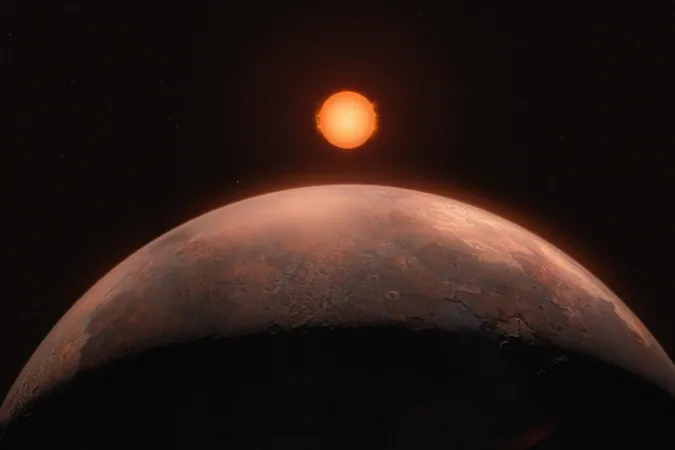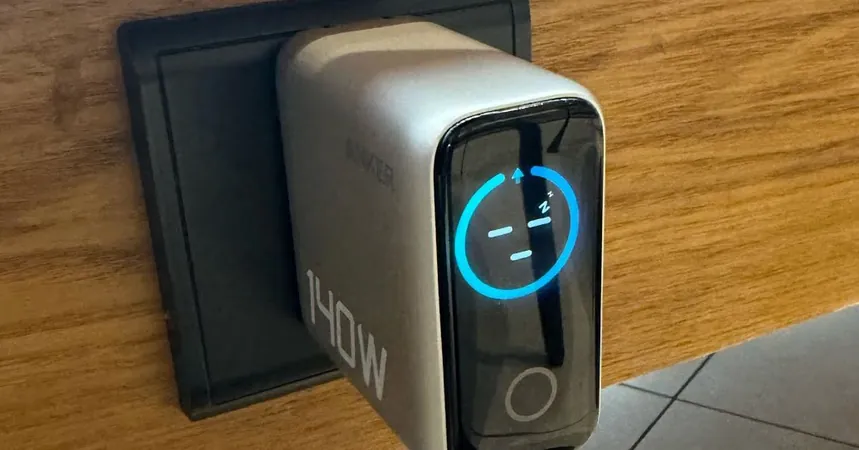
Exciting Discovery: A Small Exoplanet Found in Our 'Cosmic Backyard'!
2024-10-01
Exciting Discovery: A Small Exoplanet Found in Our 'Cosmic Backyard'!
In a groundbreaking revelation, astronomers have identified a rare exoplanet smaller than Earth orbiting Barnard's Star, one of our closest stellar neighbors located just six light-years away. The discovery, reported on October 1, was made using the powerful Very Large Telescope situated in the Chilean desert, which has been observing this star for over five years.
Dubbed Barnard b, this newly found exoplanet is an intriguing addition to our cosmic knowledge, even though it's far from suitable for life as we know it. Nestled significantly closer to its red dwarf star than Mercury is to our sun—about 20 times closer—Barnard b experiences extreme conditions, with a blistering surface temperature of 125 degrees Celsius. A full orbit around Barnard's Star takes only three Earth days, making it an intriguing yet inhospitable world.
Researchers, including lead author Jonay Gonzalez Hernandez from Spain's Instituto de Astrofisica de Canarias, emphasize that despite Barnard's Star being about 2,500 degrees Celsius cooler than our Sun, the high temperatures on Barnard b prevent the presence of liquid water, an essential component for life.
Barnard's Star is part of the Ophiuchus constellation and is the second nearest star system to ours after the Alpha Centauri trio, located at a distance of 4.2 light-years. The discovery of Barnard b is particularly significant because red dwarf stars like Barnard’s are prime candidates in the search for exoplanets. These stars are cooler than other types, providing a better chance to locate potentially habitable planets.
The excitement doesn’t stop there! Tantalizingly, the research team also uncovered evidence suggesting the presence of three additional exoplanets potentially orbiting Barnard's Star. However, further research and observations are required to confirm these findings.
The discovery aligns with a broader trend observed since the 1990s, during which more than 5,700 exoplanets have been identified beyond our Solar System. Among these, very few have been located in the elusive "Goldilocks zone," where conditions could be just right for liquid water and, theoretically, life.
As we continue to probe the depths of our universe, researchers like co-author Alejandro Suarez Mascareno remind us that "our cosmic backyard is full of low-mass planets" waiting to be explored. This thrilling find adds yet another layer to our understanding of the universe and its diverse celestial bodies. Keep watching the skies—who knows what other secrets they might hold!

 Brasil (PT)
Brasil (PT)
 Canada (EN)
Canada (EN)
 Chile (ES)
Chile (ES)
 España (ES)
España (ES)
 France (FR)
France (FR)
 Hong Kong (EN)
Hong Kong (EN)
 Italia (IT)
Italia (IT)
 日本 (JA)
日本 (JA)
 Magyarország (HU)
Magyarország (HU)
 Norge (NO)
Norge (NO)
 Polska (PL)
Polska (PL)
 Schweiz (DE)
Schweiz (DE)
 Singapore (EN)
Singapore (EN)
 Sverige (SV)
Sverige (SV)
 Suomi (FI)
Suomi (FI)
 Türkiye (TR)
Türkiye (TR)